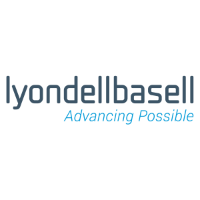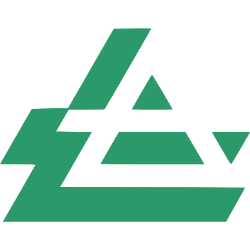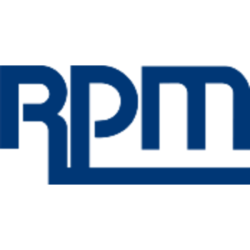ECL

Ecolab Inc.
ECL
(2.0)232,47 USD
16.61% ROA
24.72% ROE
41.99x PER
71.879.989.560,00 USD
92.63% DER
0.9% Yield
13.04% NPM
Ecolab Inc. Stock Analysis
Ecolab Inc. Fundamental Analysis
Fundamental analysis in stock investing is like studying the foundation of a house before buying it. It involves looking at a company's financial health, like its earnings, assets, and debts, to determine if it's a good investment based on its fundamental strength and potential for growth.
| # | Analysis | Rating |
|---|---|---|
| 1 |
Dividend
Investors can trust the company's impressive dividend track record, consistently distributing dividends over the past five years, showcasing a strong commitment to rewarding shareholders. |
|
| 2 |
ROE
ROE surpassing expectations (16.46%) highlights strong profitability and efficient use of shareholders' equity, making it an appealing investment prospect. |
|
| 3 |
ROA
This stock has a great ability to make a lot of money from the things it owns, which makes it a really good investment for smart investors. |
|
| 4 |
Assets Growth
Over the past three years, this company's revenue has consistently grown, demonstrating a positive financial trend that makes it an appealing choice. |
|
| 5 |
Buffet Intrinsic Value
The company's stock shows potential as it is undervalued (2.388) according to Warren Buffett's formula, indicating that its intrinsic value exceeds the market price. |
|
| 6 |
Net Profit Growth
This company's net profit has remained flat over the past five years, suggesting a lack of growth and making it a less attractive investment opportunity. |
|
| 7 |
Graham Number
The company's Graham number indicates that it is overvalued compared to its stock price, suggesting a potentially unfavorable investment opportunity. |
|
| 8 |
Dividend Growth
The company's dividend growth has shown no improvement in the past three years, making it a less attractive investment option for those seeking increasing returns. |
|
| 9 |
PBV
The stock's elevated P/BV ratio (6.74x) raises concerns about its overvaluation, making it an imprudent choice for investors seeking value. |
|
| 10 |
DER
The company has a high debt to equity ratio (116%), which means it owes a lot of money compared to what it actually owns, making it financially risky. |
|
| 11 |
Revenue Growth
Company's revenue has remained stagnant over the past three years, indicating a lack of growth and making it a less favorable option. |
Ecolab Inc. Technical Analysis
Technical analysis in stock investing is like reading the patterns on a weather map to predict future weather conditions. It involves studying past stock price movements and trading volumes to make predictions about where a stock's price might go next, without necessarily looking at the company's financial health.
| # | Analysis | Recommendation |
|---|---|---|
| 1 | Awesome Oscillator | Buy |
| 2 | MACD | Buy |
| 3 | RSI | Hold |
| 4 | Stoch RSI | Sell |
Ecolab Inc. Price Chart
Financial Statements
Financial statements are like report cards for companies. They show how much money a company makes (income statement), what it owns and owes (balance sheet), and where it spends its money (cash flow statement), helping stock investors understand if a company is healthy and worth investing in.
Income Statements
An income statement for a company is like a scoreboard for its profits and losses. It shows how much money the company made (revenue) and how much it spent to make that money (expenses), helping stock investors see if a company is making a profit or not.
Revenue in stock investing is the total amount of money a company earns from its sales, and it's a key factor that investors consider to assess a company's financial performance and growth potential.
| Year | Revenue | Growth |
|---|---|---|
| 1986 | 812.900.000 | |
| 1987 | 1.020.200.000 | 20.32% |
| 1988 | 1.211.900.000 | 15.82% |
| 1989 | 1.305.600.000 | 7.18% |
| 1990 | 1.390.000.000 | 6.07% |
| 1991 | 918.000.000 | -51.42% |
| 1992 | 1.004.800.000 | 8.64% |
| 1993 | 1.041.500.000 | 3.52% |
| 1994 | 1.207.600.000 | 13.75% |
| 1995 | 1.340.900.000 | 9.94% |
| 1996 | 1.490.000.000 | 10.01% |
| 1997 | 1.640.400.000 | 9.17% |
| 1998 | 1.888.200.000 | 13.12% |
| 1999 | 2.080.000.000 | 9.22% |
| 2000 | 2.264.313.000 | 8.14% |
| 2001 | 2.354.723.000 | 3.84% |
| 2002 | 3.403.585.000 | 30.82% |
| 2003 | 3.761.819.000 | 9.52% |
| 2004 | 4.184.933.000 | 10.11% |
| 2005 | 4.534.832.000 | 7.72% |
| 2006 | 4.895.814.000 | 7.37% |
| 2007 | 5.469.600.000 | 10.49% |
| 2008 | 6.137.500.000 | 10.88% |
| 2009 | 5.900.600.000 | -4.01% |
| 2010 | 6.089.700.000 | 3.11% |
| 2011 | 6.798.500.000 | 10.43% |
| 2012 | 11.838.700.000 | 42.57% |
| 2013 | 13.253.400.000 | 10.67% |
| 2014 | 14.280.500.000 | 7.19% |
| 2015 | 13.545.100.000 | -5.43% |
| 2016 | 13.152.800.000 | -2.98% |
| 2017 | 13.835.900.000 | 4.94% |
| 2018 | 14.668.200.000 | 5.67% |
| 2019 | 12.562.000.000 | -16.77% |
| 2020 | 11.790.200.000 | -6.55% |
| 2021 | 12.733.100.000 | 7.41% |
| 2022 | 14.187.800.000 | 10.25% |
| 2023 | 15.832.400.000 | 10.39% |
| 2023 | 15.320.200.000 | -3.34% |
| 2024 | 15.943.200.000 | 3.91% |
Research and Development Expenses are the costs a company incurs to create and improve its products or services, which can be important for investors to evaluate a company's innovation and potential for future growth.
| Year | Research and Development Expenses | Growth |
|---|---|---|
| 1986 | 0 | |
| 1987 | 0 | 0% |
| 1988 | 0 | 0% |
| 1989 | 0 | 0% |
| 1990 | 0 | 0% |
| 1991 | 0 | 0% |
| 1992 | 0 | 0% |
| 1993 | 0 | 0% |
| 1994 | 0 | 0% |
| 1995 | 0 | 0% |
| 1996 | 0 | 0% |
| 1997 | 0 | 0% |
| 1998 | 0 | 0% |
| 1999 | 0 | 0% |
| 2000 | 0 | 0% |
| 2001 | 0 | 0% |
| 2002 | 0 | 0% |
| 2003 | 0 | 0% |
| 2004 | 0 | 0% |
| 2005 | 0 | 0% |
| 2006 | 0 | 0% |
| 2007 | 0 | 0% |
| 2008 | 0 | 0% |
| 2009 | 0 | 0% |
| 2010 | 0 | 0% |
| 2011 | 0 | 0% |
| 2012 | 183.000.000 | 100% |
| 2013 | 188.000.000 | 2.66% |
| 2014 | 197.000.000 | 4.57% |
| 2015 | 191.000.000 | -3.14% |
| 2016 | 189.000.000 | -1.06% |
| 2017 | 201.000.000 | 5.97% |
| 2018 | 216.000.000 | 6.94% |
| 2019 | 190.000.000 | -13.68% |
| 2020 | 185.000.000 | -2.7% |
| 2021 | 186.000.000 | 0.54% |
| 2022 | 190.000.000 | 2.11% |
| 2023 | 0 | 0% |
| 2023 | 192.000.000 | 100% |
| 2024 | 0 | 0% |
General and Administrative Expenses are the costs a company incurs to run its day-to-day operations, such as office rent, salaries, and utilities, which investors consider to understand a company's overall efficiency and management effectiveness.
| Year | General and Administrative Expenses | Growth |
|---|---|---|
| 1986 | 0 | |
| 1987 | 0 | 0% |
| 1988 | 0 | 0% |
| 1989 | 0 | 0% |
| 1990 | 0 | 0% |
| 1991 | 0 | 0% |
| 1992 | 0 | 0% |
| 1993 | 0 | 0% |
| 1994 | 0 | 0% |
| 1995 | 575.000.000 | 100% |
| 1996 | 629.700.000 | 8.69% |
| 1997 | 699.800.000 | 10.02% |
| 1998 | 775.100.000 | 9.71% |
| 1999 | 852.400.000 | 9.07% |
| 2000 | 916.004.000 | 6.94% |
| 2001 | 946.089.000 | 3.18% |
| 2002 | 1.283.091.000 | 26.26% |
| 2003 | 1.433.551.000 | 10.5% |
| 2004 | 1.615.064.000 | 11.24% |
| 2005 | 1.743.581.000 | 7.37% |
| 2006 | 1.868.114.000 | 6.67% |
| 2007 | 2.090.900.000 | 10.66% |
| 2008 | 2.257.500.000 | 7.38% |
| 2009 | 2.174.200.000 | -3.83% |
| 2010 | 2.261.600.000 | 3.86% |
| 2011 | 2.438.100.000 | 7.24% |
| 2012 | 3.920.200.000 | 37.81% |
| 2013 | 4.281.400.000 | 8.44% |
| 2014 | 4.577.600.000 | 6.47% |
| 2015 | 4.345.500.000 | -5.34% |
| 2016 | 4.299.400.000 | -1.07% |
| 2017 | 4.417.100.000 | 2.66% |
| 2018 | 3.968.600.000 | -11.3% |
| 2019 | 0 | 0% |
| 2020 | 0 | 0% |
| 2021 | 0 | 0% |
| 2022 | 0 | 0% |
| 2023 | 0 | 0% |
| 2023 | 0 | 0% |
| 2024 | 0 | 0% |
EBITDA stands for Earnings Before Interest, Taxes, Depreciation, and Amortization. It is a measure that helps stock investors analyze a company's profitability by looking at its earnings without considering certain expenses. This helps to get a clearer picture of the company's financial performance and its ability to generate cash flow.
| Year | EBITDA | Growth |
|---|---|---|
| 1986 | 110.500.000 | |
| 1987 | 199.100.000 | 44.5% |
| 1988 | 178.800.000 | -11.35% |
| 1989 | 167.900.000 | -6.49% |
| 1990 | 204.300.000 | 17.82% |
| 1991 | 165.300.000 | -23.59% |
| 1992 | 176.900.000 | 6.56% |
| 1993 | 181.300.000 | 2.43% |
| 1994 | 211.900.000 | 14.44% |
| 1995 | 238.800.000 | 11.26% |
| 1996 | 274.900.000 | 13.13% |
| 1997 | 319.400.000 | 13.93% |
| 1998 | 383.900.000 | 16.8% |
| 1999 | 424.500.000 | 9.56% |
| 2000 | 391.575.000 | -8.41% |
| 2001 | 481.169.000 | 18.62% |
| 2002 | 619.294.000 | 22.3% |
| 2003 | 712.314.000 | 13.06% |
| 2004 | 736.844.000 | 3.33% |
| 2005 | 799.355.000 | 7.82% |
| 2006 | 880.211.000 | 9.19% |
| 2007 | 978.900.000 | 10.08% |
| 2008 | 1.056.400.000 | 7.34% |
| 2009 | 1.013.200.000 | -4.26% |
| 2010 | 1.167.100.000 | 13.19% |
| 2011 | 1.149.700.000 | -1.51% |
| 2012 | 1.983.700.000 | 42.04% |
| 2013 | 2.591.300.000 | 23.45% |
| 2014 | 2.910.100.000 | 10.95% |
| 2015 | 2.419.700.000 | -20.27% |
| 2016 | 2.870.200.000 | 15.7% |
| 2017 | 2.922.700.000 | 1.8% |
| 2018 | 3.017.000.000 | 3.13% |
| 2019 | 2.863.300.000 | -5.37% |
| 2020 | 2.496.800.000 | -14.68% |
| 2021 | 2.709.300.000 | 7.84% |
| 2022 | 2.786.700.000 | 2.78% |
| 2023 | 2.468.800.000 | -12.88% |
| 2023 | 3.033.800.000 | 18.62% |
| 2024 | 3.630.800.000 | 16.44% |
Gross profit is the money a company makes from selling its products or services after subtracting the cost of producing or providing them, and it is an important measure for investors to understand a company's profitability.
| Year | Gross Profit | Growth |
|---|---|---|
| 1986 | 455.800.000 | |
| 1987 | 593.900.000 | 23.25% |
| 1988 | 682.100.000 | 12.93% |
| 1989 | 730.800.000 | 6.66% |
| 1990 | 803.500.000 | 9.05% |
| 1991 | 550.500.000 | -45.96% |
| 1992 | 611.800.000 | 10.02% |
| 1993 | 647.900.000 | 5.57% |
| 1994 | 741.400.000 | 12.61% |
| 1995 | 813.800.000 | 8.9% |
| 1996 | 904.600.000 | 10.04% |
| 1997 | 1.019.200.000 | 11.24% |
| 1998 | 1.159.000.000 | 12.06% |
| 1999 | 1.276.900.000 | 9.23% |
| 2000 | 1.386.843.000 | 7.93% |
| 2001 | 1.265.092.000 | -9.62% |
| 2002 | 1.715.988.000 | 26.28% |
| 2003 | 1.916.617.000 | 10.47% |
| 2004 | 2.153.653.000 | 11.01% |
| 2005 | 2.286.001.000 | 5.79% |
| 2006 | 2.479.756.000 | 7.81% |
| 2007 | 2.777.900.000 | 10.73% |
| 2008 | 2.995.900.000 | 7.28% |
| 2009 | 2.922.600.000 | -2.51% |
| 2010 | 3.075.900.000 | 4.98% |
| 2011 | 3.322.900.000 | 7.43% |
| 2012 | 5.355.200.000 | 37.95% |
| 2013 | 6.013.300.000 | 10.94% |
| 2014 | 6.601.400.000 | 8.91% |
| 2015 | 6.321.600.000 | -4.43% |
| 2016 | 6.253.900.000 | -1.08% |
| 2017 | 5.736.100.000 | -9.03% |
| 2018 | 6.042.300.000 | 5.07% |
| 2019 | 5.516.200.000 | -9.54% |
| 2020 | 4.884.400.000 | -12.94% |
| 2021 | 5.117.300.000 | 4.55% |
| 2022 | 5.356.800.000 | 4.47% |
| 2023 | 6.510.400.000 | 17.72% |
| 2023 | 6.177.200.000 | -5.39% |
| 2024 | 6.977.200.000 | 11.47% |
Net income in stock investing is like the money a company actually gets to keep as profit after paying all its bills, and it's an important measure to understand how well a company is doing financially.
| Year | Net Profit | Growth |
|---|---|---|
| 1986 | 43.700.000 | |
| 1987 | 141.800.000 | 69.18% |
| 1988 | 44.100.000 | -221.54% |
| 1989 | 3.100.000 | -1322.58% |
| 1990 | 53.700.000 | 94.23% |
| 1991 | -243.600.000 | 122.04% |
| 1992 | 64.300.000 | 478.85% |
| 1993 | 76.600.000 | 16.06% |
| 1994 | 84.600.000 | 9.46% |
| 1995 | 99.200.000 | 14.72% |
| 1996 | 113.200.000 | 12.37% |
| 1997 | 134.000.000 | 15.52% |
| 1998 | 192.500.000 | 30.39% |
| 1999 | 175.800.000 | -9.5% |
| 2000 | 206.127.000 | 14.71% |
| 2001 | 188.170.000 | -9.54% |
| 2002 | 209.770.000 | 10.3% |
| 2003 | 277.348.000 | 24.37% |
| 2004 | 310.488.000 | 10.67% |
| 2005 | 319.481.000 | 2.81% |
| 2006 | 368.615.000 | 13.33% |
| 2007 | 427.200.000 | 13.71% |
| 2008 | 448.100.000 | 4.66% |
| 2009 | 417.300.000 | -7.38% |
| 2010 | 530.300.000 | 21.31% |
| 2011 | 462.500.000 | -14.66% |
| 2012 | 703.600.000 | 34.27% |
| 2013 | 967.800.000 | 27.3% |
| 2014 | 1.202.800.000 | 19.54% |
| 2015 | 1.002.100.000 | -20.03% |
| 2016 | 1.229.600.000 | 18.5% |
| 2017 | 1.504.600.000 | 18.28% |
| 2018 | 1.429.100.000 | -5.28% |
| 2019 | 1.558.900.000 | 8.33% |
| 2020 | 984.800.000 | -58.3% |
| 2021 | 1.129.900.000 | 12.84% |
| 2022 | 1.091.700.000 | -3.5% |
| 2023 | 1.616.000.000 | 32.44% |
| 2023 | 1.372.300.000 | -17.76% |
| 2024 | 1.963.600.000 | 30.11% |
EPS, or earnings per share, is a measure that shows how much profit a company has earned for each outstanding share of its stock, and it is important for stock investors as it helps understand the profitability of a company and compare it with other companies in the market.
| Year | Earning per Share (EPS) | Growth |
|---|---|---|
| 1986 | 0 | |
| 1987 | 1 | 0% |
| 1988 | 0 | 0% |
| 1989 | 0 | 0% |
| 1990 | 0 | 0% |
| 1991 | -1 | 100% |
| 1992 | 0 | 0% |
| 1993 | 0 | 0% |
| 1994 | 1 | 0% |
| 1995 | 0 | 0% |
| 1996 | 0 | 0% |
| 1997 | 1 | 0% |
| 1998 | 1 | 0% |
| 1999 | 1 | 0% |
| 2000 | 1 | 0% |
| 2001 | 1 | 0% |
| 2002 | 1 | 0% |
| 2003 | 1 | 100% |
| 2004 | 1 | 0% |
| 2005 | 1 | 0% |
| 2006 | 1 | 0% |
| 2007 | 2 | 0% |
| 2008 | 2 | 0% |
| 2009 | 2 | 0% |
| 2010 | 2 | 50% |
| 2011 | 2 | -100% |
| 2012 | 2 | 50% |
| 2013 | 3 | 33.33% |
| 2014 | 4 | 25% |
| 2015 | 3 | -33.33% |
| 2016 | 4 | 25% |
| 2017 | 5 | 20% |
| 2018 | 5 | -25% |
| 2019 | 5 | 20% |
| 2020 | 3 | -66.67% |
| 2021 | 4 | 0% |
| 2022 | 4 | 0% |
| 2023 | 6 | 40% |
| 2023 | 5 | -25% |
| 2024 | 7 | 33.33% |
Cashflow Statements
Cashflow statements show the movement of money in and out of a company, helping stock investors understand how much money a company makes and spends. By examining cashflow statements, investors can assess if a company is generating enough cash to pay its bills, invest in growth, and provide returns to stockholders.
Free cash flow is the leftover cash that a company generates after covering its operating expenses and capital expenditures, which is important for stock investors as it shows how much money a company has available to invest in growth, pay dividends, or reduce debt.
| Year | Free Cashflow | Growth |
|---|---|---|
| 1989 | 52.600.000 | |
| 1990 | 82.000.000 | 35.85% |
| 1991 | 70.300.000 | -16.64% |
| 1992 | 55.900.000 | -25.76% |
| 1993 | 103.000.000 | 45.73% |
| 1994 | 80.800.000 | -27.48% |
| 1995 | 56.600.000 | -42.76% |
| 1996 | 142.800.000 | 60.36% |
| 1997 | 113.400.000 | -25.93% |
| 1998 | 47.800.000 | -137.24% |
| 1999 | 101.900.000 | 53.09% |
| 2000 | 165.477.000 | 38.42% |
| 2001 | 206.544.000 | 19.88% |
| 2002 | 210.569.000 | 1.91% |
| 2003 | 317.164.000 | 33.61% |
| 2004 | 306.593.000 | -3.45% |
| 2005 | 321.353.000 | 4.59% |
| 2006 | 306.625.000 | -4.8% |
| 2007 | 436.100.000 | 29.69% |
| 2008 | 358.700.000 | -21.58% |
| 2009 | 397.700.000 | 9.81% |
| 2010 | 652.700.000 | 39.07% |
| 2011 | 319.500.000 | -104.29% |
| 2012 | 595.500.000 | 46.35% |
| 2013 | 897.500.000 | 33.65% |
| 2014 | 1.021.700.000 | 12.16% |
| 2015 | 1.184.600.000 | 13.75% |
| 2016 | 1.182.900.000 | -0.14% |
| 2017 | 1.222.700.000 | 3.26% |
| 2018 | 1.430.600.000 | 14.53% |
| 2019 | 1.689.400.000 | 15.32% |
| 2020 | 1.371.200.000 | -23.21% |
| 2021 | 1.418.900.000 | 3.36% |
| 2022 | 1.075.600.000 | -31.92% |
| 2023 | 1.637.000.000 | 34.29% |
| 2023 | 621.200.000 | -163.52% |
| 2024 | 414.200.000 | -49.98% |
Operating cash flow represents the cash generated or consumed by a company's day-to-day operations, excluding external investing or financing activities, and is crucial for stock investors as it shows how much cash a company is generating from its core business operations.
| Year | Operating Cashflow | Growth |
|---|---|---|
| 1989 | 114.600.000 | |
| 1990 | 146.200.000 | 21.61% |
| 1991 | 122.300.000 | -19.54% |
| 1992 | 113.100.000 | -8.13% |
| 1993 | 170.000.000 | 33.47% |
| 1994 | 169.300.000 | -0.41% |
| 1995 | 166.500.000 | -1.68% |
| 1996 | 254.300.000 | 34.53% |
| 1997 | 235.100.000 | -8.17% |
| 1998 | 235.600.000 | 0.21% |
| 1999 | 293.500.000 | 19.73% |
| 2000 | 315.486.000 | 6.97% |
| 2001 | 364.481.000 | 13.44% |
| 2002 | 423.326.000 | 13.9% |
| 2003 | 529.199.000 | 20.01% |
| 2004 | 582.464.000 | 9.14% |
| 2005 | 590.136.000 | 1.3% |
| 2006 | 627.564.000 | 5.96% |
| 2007 | 797.600.000 | 21.32% |
| 2008 | 753.200.000 | -5.89% |
| 2009 | 695.000.000 | -8.37% |
| 2010 | 950.400.000 | 26.87% |
| 2011 | 685.500.000 | -38.64% |
| 2012 | 1.203.000.000 | 43.02% |
| 2013 | 1.559.800.000 | 22.87% |
| 2014 | 1.815.600.000 | 14.09% |
| 2015 | 1.999.800.000 | 9.21% |
| 2016 | 1.939.700.000 | -3.1% |
| 2017 | 2.091.300.000 | 7.25% |
| 2018 | 2.277.700.000 | 8.18% |
| 2019 | 2.420.700.000 | 5.91% |
| 2020 | 1.860.200.000 | -30.13% |
| 2021 | 2.061.900.000 | 9.78% |
| 2022 | 1.788.400.000 | -15.29% |
| 2023 | 2.411.800.000 | 25.85% |
| 2023 | 787.700.000 | -206.18% |
| 2024 | 611.100.000 | -28.9% |
Capex, short for capital expenditures, refers to the money a company spends on acquiring or upgrading tangible assets like buildings, equipment, or technology, which is important for stock investors as it indicates how much a company is investing in its infrastructure to support future growth and profitability.
| Year | Capital Expenditure | Growth |
|---|---|---|
| 1989 | 62.000.000 | |
| 1990 | 64.200.000 | 3.43% |
| 1991 | 52.000.000 | -23.46% |
| 1992 | 57.200.000 | 9.09% |
| 1993 | 67.000.000 | 14.63% |
| 1994 | 88.500.000 | 24.29% |
| 1995 | 109.900.000 | 19.47% |
| 1996 | 111.500.000 | 1.43% |
| 1997 | 121.700.000 | 8.38% |
| 1998 | 187.800.000 | 35.2% |
| 1999 | 191.600.000 | 1.98% |
| 2000 | 150.009.000 | -27.73% |
| 2001 | 157.937.000 | 5.02% |
| 2002 | 212.757.000 | 25.77% |
| 2003 | 212.035.000 | -0.34% |
| 2004 | 275.871.000 | 23.14% |
| 2005 | 268.783.000 | -2.64% |
| 2006 | 320.939.000 | 16.25% |
| 2007 | 361.500.000 | 11.22% |
| 2008 | 394.500.000 | 8.37% |
| 2009 | 297.300.000 | -32.69% |
| 2010 | 297.700.000 | 0.13% |
| 2011 | 366.000.000 | 18.66% |
| 2012 | 607.500.000 | 39.75% |
| 2013 | 662.300.000 | 8.27% |
| 2014 | 793.900.000 | 16.58% |
| 2015 | 815.200.000 | 2.61% |
| 2016 | 756.800.000 | -7.72% |
| 2017 | 868.600.000 | 12.87% |
| 2018 | 847.100.000 | -2.54% |
| 2019 | 731.300.000 | -15.83% |
| 2020 | 489.000.000 | -49.55% |
| 2021 | 643.000.000 | 23.95% |
| 2022 | 712.800.000 | 9.79% |
| 2023 | 774.800.000 | 8% |
| 2023 | 166.500.000 | -365.35% |
| 2024 | 196.900.000 | 15.44% |
Balance Sheet
Balance sheets provide a snapshot of a company's financial health and its assets (such as cash, inventory, and property) and liabilities (like debts and obligations) at a specific point in time. For stock investors, balance sheets help assess the company's overall worth and evaluate its ability to meet financial obligations and support future growth.
Equity refers to the ownership interest or stake that shareholders have in a company, representing their claim on its assets and earnings after all debts and liabilities are paid.
| Year | Equity | Growth |
|---|---|---|
| 1986 | 261.600.000 | |
| 1987 | 394.200.000 | 33.64% |
| 1988 | 433.300.000 | 9.02% |
| 1989 | 515.600.000 | 15.96% |
| 1990 | 452.600.000 | -13.92% |
| 1991 | 298.200.000 | -51.78% |
| 1992 | 343.500.000 | 13.19% |
| 1993 | 374.300.000 | 8.23% |
| 1994 | 461.800.000 | 18.95% |
| 1995 | 456.700.000 | -1.12% |
| 1996 | 520.000.000 | 12.17% |
| 1997 | 551.700.000 | 5.75% |
| 1998 | 690.500.000 | 20.1% |
| 1999 | 762.000.000 | 9.38% |
| 2000 | 757.007.000 | -0.66% |
| 2001 | 880.352.000 | 14.01% |
| 2002 | 1.099.751.000 | 19.95% |
| 2003 | 1.295.426.000 | 15.11% |
| 2004 | 1.562.519.000 | 17.09% |
| 2005 | 1.649.210.000 | 5.26% |
| 2006 | 1.680.230.000 | 1.85% |
| 2007 | 1.935.700.000 | 13.2% |
| 2008 | 1.571.600.000 | -23.17% |
| 2009 | 2.009.600.000 | 21.8% |
| 2010 | 2.133.000.000 | 5.79% |
| 2011 | 5.741.100.000 | 62.85% |
| 2012 | 6.160.100.000 | 6.8% |
| 2013 | 7.409.400.000 | 16.86% |
| 2014 | 7.382.100.000 | -0.37% |
| 2015 | 6.980.400.000 | -5.75% |
| 2016 | 6.970.900.000 | -0.14% |
| 2017 | 7.688.700.000 | 9.34% |
| 2018 | 8.053.600.000 | 4.53% |
| 2019 | 8.725.800.000 | 7.7% |
| 2020 | 6.201.500.000 | -40.7% |
| 2021 | 7.253.100.000 | 14.5% |
| 2022 | 7.258.600.000 | 0.08% |
| 2023 | 8.072.200.000 | 10.08% |
| 2023 | 7.822.500.000 | -3.19% |
| 2024 | 8.307.900.000 | 5.84% |
Assets represent the valuable resources that a company owns, such as cash, inventory, property, and equipment, and understanding a company's assets helps investors assess its value and potential for generating future profits.
| Year | Assets | Growth |
|---|---|---|
| 1986 | 475.100.000 | |
| 1987 | 958.900.000 | 50.45% |
| 1988 | 943.300.000 | -1.65% |
| 1989 | 1.042.900.000 | 9.55% |
| 1990 | 926.000.000 | -12.62% |
| 1991 | 921.900.000 | -0.44% |
| 1992 | 832.400.000 | -10.75% |
| 1993 | 862.600.000 | 3.5% |
| 1994 | 1.020.400.000 | 15.46% |
| 1995 | 1.060.900.000 | 3.82% |
| 1996 | 1.208.400.000 | 12.21% |
| 1997 | 1.416.300.000 | 14.68% |
| 1998 | 1.471.000.000 | 3.72% |
| 1999 | 1.585.900.000 | 7.25% |
| 2000 | 1.714.011.000 | 7.47% |
| 2001 | 2.525.000.000 | 32.12% |
| 2002 | 2.878.429.000 | 12.28% |
| 2003 | 3.228.918.000 | 10.85% |
| 2004 | 3.716.174.000 | 13.11% |
| 2005 | 3.796.628.000 | 2.12% |
| 2006 | 4.419.365.000 | 14.09% |
| 2007 | 4.722.800.000 | 6.42% |
| 2008 | 4.756.900.000 | 0.72% |
| 2009 | 5.020.900.000 | 5.26% |
| 2010 | 4.872.200.000 | -3.05% |
| 2011 | 18.240.800.000 | 73.29% |
| 2012 | 17.572.300.000 | -3.8% |
| 2013 | 19.636.500.000 | 10.51% |
| 2014 | 19.466.700.000 | -0.87% |
| 2015 | 18.641.700.000 | -4.43% |
| 2016 | 18.330.200.000 | -1.7% |
| 2017 | 19.962.400.000 | 8.18% |
| 2018 | 20.074.500.000 | 0.56% |
| 2019 | 20.869.100.000 | 3.81% |
| 2020 | 18.126.000.000 | -15.13% |
| 2021 | 21.206.400.000 | 14.53% |
| 2022 | 21.464.300.000 | 1.2% |
| 2023 | 21.846.600.000 | 1.75% |
| 2023 | 21.858.100.000 | 0.05% |
| 2024 | 21.461.800.000 | -1.85% |
Liabilities refer to the financial obligations or debts that a company owes to creditors or external parties, and understanding a company's liabilities is important for investors as it helps assess the company's financial risk and ability to meet its obligations.
| Year | Liabilities | Growth |
|---|---|---|
| 1986 | 213.500.000 | |
| 1987 | 564.700.000 | 62.19% |
| 1988 | 510.000.000 | -10.73% |
| 1989 | 527.300.000 | 3.28% |
| 1990 | 473.400.000 | -11.39% |
| 1991 | 623.700.000 | 24.1% |
| 1992 | 488.900.000 | -27.57% |
| 1993 | 488.300.000 | -0.12% |
| 1994 | 558.600.000 | 12.59% |
| 1995 | 604.200.000 | 7.55% |
| 1996 | 688.400.000 | 12.23% |
| 1997 | 864.600.000 | 20.38% |
| 1998 | 780.500.000 | -10.78% |
| 1999 | 823.900.000 | 5.27% |
| 2000 | 957.004.000 | 13.91% |
| 2001 | 1.644.648.000 | 41.81% |
| 2002 | 1.778.678.000 | 7.54% |
| 2003 | 1.933.492.000 | 8.01% |
| 2004 | 2.153.655.000 | 10.22% |
| 2005 | 2.147.418.000 | -0.29% |
| 2006 | 2.739.135.000 | 21.6% |
| 2007 | 2.787.100.000 | 1.72% |
| 2008 | 3.185.300.000 | 12.5% |
| 2009 | 3.011.300.000 | -5.78% |
| 2010 | 2.739.200.000 | -9.93% |
| 2011 | 12.499.700.000 | 78.09% |
| 2012 | 11.412.200.000 | -9.53% |
| 2013 | 12.227.100.000 | 6.66% |
| 2014 | 12.084.600.000 | -1.18% |
| 2015 | 11.661.300.000 | -3.63% |
| 2016 | 11.359.300.000 | -2.66% |
| 2017 | 12.273.700.000 | 7.45% |
| 2018 | 12.020.900.000 | -2.1% |
| 2019 | 12.143.300.000 | 1.01% |
| 2020 | 11.924.500.000 | -1.83% |
| 2021 | 13.953.300.000 | 14.54% |
| 2022 | 14.205.700.000 | 1.78% |
| 2023 | 13.774.400.000 | -3.13% |
| 2023 | 14.035.600.000 | 1.86% |
| 2024 | 13.153.900.000 | -6.7% |
Ecolab Inc. Financial Ratio (TTM)
Valuation Metrics
- Revenue per Share
- 54.93
- Net Income per Share
- 6.02
- Price to Earning Ratio
- 41.99x
- Price To Sales Ratio
- 4.6x
- POCF Ratio
- 24.79
- PFCF Ratio
- 34.67
- Price to Book Ratio
- 8.68
- EV to Sales
- 5.09
- EV Over EBITDA
- 27.49
- EV to Operating CashFlow
- 27.45
- EV to FreeCashFlow
- 38.4
- Earnings Yield
- 0.02
- FreeCashFlow Yield
- 0.03
- Market Cap
- 71,88 Bil.
- Enterprise Value
- 79,61 Bil.
- Graham Number
- 62.78
- Graham NetNet
- -34.21
Income Statement Metrics
- Net Income per Share
- 6.02
- Income Quality
- 1.69
- ROE
- 0.21
- Return On Assets
- 0.09
- Return On Capital Employed
- 0.17
- Net Income per EBT
- 0.79
- EBT Per Ebit
- 0.89
- Ebit per Revenue
- 0.18
- Effective Tax Rate
- 0.2
Margins
- Sales, General, & Administrative to Revenue
- 0
- Research & Developement to Revenue
- 0.01
- Stock Based Compensation to Revenue
- 0.01
- Gross Profit Margin
- 0.43
- Operating Profit Margin
- 0.18
- Pretax Profit Margin
- 0.16
- Net Profit Margin
- 0.13
Dividends
- Dividend Yield
- 0.01
- Dividend Yield %
- 0.9
- Payout Ratio
- 0.38
- Dividend Per Share
- 2.28
Operating Metrics
- Operating Cashflow per Share
- 10.19
- Free CashFlow per Share
- 7.28
- Capex to Operating CashFlow
- 0.29
- Capex to Revenue
- 0.05
- Capex to Depreciation
- 0.89
- Return on Invested Capital
- 0.12
- Return on Tangible Assets
- 0.17
- Days Sales Outstanding
- 71.03
- Days Payables Outstanding
- 68.74
- Days of Inventory on Hand
- 61.22
- Receivables Turnover
- 5.14
- Payables Turnover
- 5.31
- Inventory Turnover
- 5.96
- Capex per Share
- 2.91
Balance Sheet
- Cash per Share
- 1,35
- Book Value per Share
- 29,19
- Tangible Book Value per Share
- -10.01
- Shareholders Equity per Share
- 29.12
- Interest Debt per Share
- 28.1
- Debt to Equity
- 0.93
- Debt to Assets
- 0.36
- Net Debt to EBITDA
- 2.67
- Current Ratio
- 1.5
- Tangible Asset Value
- -2,85 Bil.
- Net Current Asset Value
- -7,40 Bil.
- Invested Capital
- 17050500000
- Working Capital
- 1,90 Bil.
- Intangibles to Total Assets
- 0.52
- Average Receivables
- 3,00 Bil.
- Average Payables
- 1,65 Bil.
- Average Inventory
- 1535900000
- Debt to Market Cap
- 0.11
Dividends
Dividends in stock investing are like rewards that companies give to their shareholders. They are a portion of the company's profits distributed to investors, typically in the form of cash payments, as a way for them to share in the company's success.
| Year | Dividends | Growth |
|---|---|---|
| 1986 | 0 | |
| 1987 | 1 | 0% |
| 1988 | 1 | 0% |
| 1989 | 1 | 0% |
| 1990 | 1 | 0% |
| 1991 | 1 | 0% |
| 1992 | 1 | 0% |
| 1993 | 1 | 0% |
| 1994 | 0 | 0% |
| 1995 | 1 | 0% |
| 1996 | 1 | 0% |
| 1997 | 1 | 0% |
| 1998 | 0 | 0% |
| 1999 | 0 | 0% |
| 2000 | 0 | 0% |
| 2001 | 1 | 0% |
| 2002 | 1 | 0% |
| 2003 | 0 | 0% |
| 2004 | 0 | 0% |
| 2005 | 0 | 0% |
| 2006 | 0 | 0% |
| 2007 | 0 | 0% |
| 2008 | 1 | 0% |
| 2009 | 1 | 0% |
| 2010 | 1 | 0% |
| 2011 | 1 | 0% |
| 2012 | 1 | 0% |
| 2013 | 1 | 0% |
| 2014 | 1 | 100% |
| 2015 | 1 | 0% |
| 2016 | 1 | 0% |
| 2017 | 2 | 0% |
| 2018 | 2 | 0% |
| 2019 | 2 | 0% |
| 2020 | 2 | 0% |
| 2021 | 2 | 0% |
| 2022 | 2 | 50% |
| 2023 | 2 | 0% |
| 2024 | 2 | -100% |
Ecolab Inc. Profile
About Ecolab Inc.
Ecolab Inc. provides water, hygiene, and infection prevention solutions and services in the United States and internationally. The company operates through Global Industrial, Global Institutional & Specialty, and Global Healthcare & Life Sciences segments. The Global Industrial segment offers water treatment and process applications, and cleaning and sanitizing solutions to manufacturing, food and beverage processing, transportation, chemical, metals and mining, power generation, pulp and paper, commercial laundry, petroleum, refining, and petrochemical industries. The Global Institutional & Specialty segment provides specialized cleaning and sanitizing products to the foodservice, hospitality, lodging, government and education, and retail industries. Its Global Healthcare & Life Sciences segment offers specialized cleaning and sanitizing products to the healthcare, personal care, and pharmaceutical industries, such as infection prevention and surgical solutions, and end-to-end cleaning and contamination control solutions under the Ecolab, Microtek, and Anios brand names. The company's Other segment offers pest elimination services to detect, eliminate, and prevent pests, such as rodents and insects in restaurants, food and beverage processors, educational and healthcare facilities, hotels, quick service restaurant and grocery operations, and other institutional and commercial customers. This segment also provides colloidal silica for binding and polishing applications in semiconductor, catalyst, and aerospace component manufacturing, as well as chemical industries; and products and services that manage wash process through custom designed programs, premium products, dispensing equipment, water and energy management, and reduction, as well as real time data management. It sells its products through field sales and corporate account personnel, distributors, and dealers. The company was founded in 1923 and is headquartered in Saint Paul, Minnesota.
- CEO
- Mr. Christophe Beck
- Employee
- 48.000
- Address
-
1 Ecolab Place
Saint Paul, 55102-2233
Ecolab Inc. Executives & BODs
| # | Name | Age |
|---|---|---|
| 1 |
Mr. Darrell R. Brown President & Chief Operating Officer |
70 |
| 2 |
Mr. Machiel Duijser Executive Vice President & Chief Supply Chain Officer |
70 |
| 3 |
Ms. Jandeen Boone Executive Vice President, General Counsel, Secretary & Interim Chief Compliance Officer |
70 |
| 4 |
Ms. Gail Peterson Executive Vice President of Global Marketing & Communications |
70 |
| 5 |
Mr. Andrew Hedberg Director of Investor Relations |
70 |
| 6 |
Ms. Laurie M. Marsh Executive Vice President of Human Resources |
70 |
| 7 |
Mr. David Bingenheimer Executive Vice President & Chief Information Officer |
70 |
| 8 |
Dr. Larry L. Berger Executive Vice President & Chief Technology Officer |
70 |
| 9 |
Mr. Christophe Beck Chief Executive Officer & Chairman of the Board |
70 |
| 10 |
Mr. Scott D. Kirkland Chief Financial Officer |
70 |









